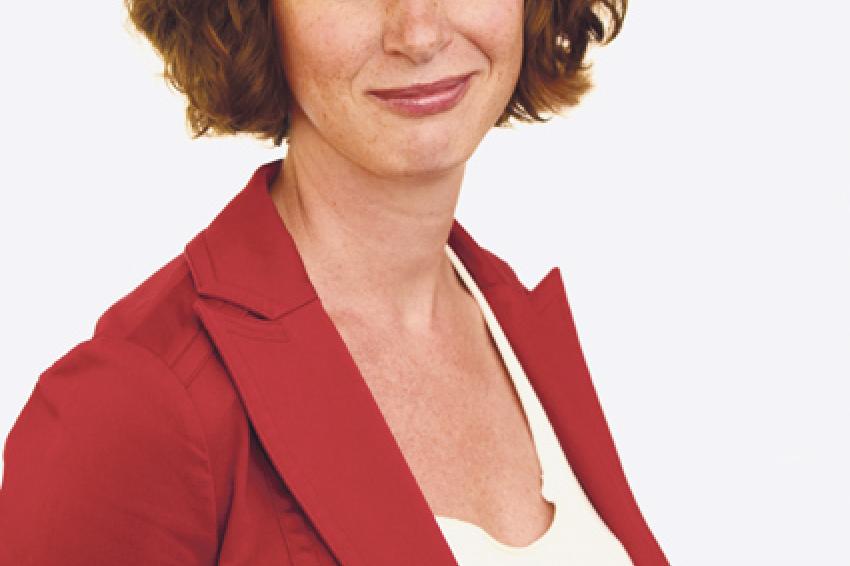Global Meets Local in Austria
Advancing Life Science at the Heart of Europe
Made In Austria - Austria's life science sector is renowned for sustainable growth and a lively, creative and innovative approach rooted in world-class engineering and science. As a nonprofit organization, Life Science Austria (LISA) promotes Austria as a rich resource for biotechnology, medical technology and diagnostic companies, including enabling technologies and related service providers. Austria is a key European life science location that is recognized internationally as a strong source of lead drug candidates, products, technologies and services.
The life science industry in Austria is fully diversified with companies large and small as well as a number of multinational companies, though small to medium-sized companies predominate. The remarkable factor is the cooperation between producers, suppliers and service providers within a short distance, meaning the results are truly „Made in Austria."
More than 210 Austrian life science companies employ approximately 11,500 people. Over 90% of these are small and medium-sized companies. Additionally, there are around 600 companies acting as suppliers to the industry for components and services meaning that in many cases the value chain is entirely Austrian. In addition to well-known large multinationals (including Sandoz, Roche, Greiner Bio-One, Med-EL, Baxter and Otto Bock, Boehringer-Ingelheim), many of the other companies are themselves market leaders and are well known to global industry experts. This is a key component of the Austrian economy and one that is valued and supported by the national and regional governments. The combination of global players with research facilities in Austria and young, dynamic start-ups in close cooperation with excellent universities creates an ideal environment for the growth and prosperity of the Austrian life science industry.
The Place to Do Business
In recent years, the strength of Austria's growing life science sector has been reflected in the increasing interest shown by international business. And it is not just the proliferation of corporate deals that shows Austria in a good light; the country is also proving to be an attractive location for operations and significant inward investment for multinational companies.
Since 1982, the American group Baxter Bioscience has been running its biggest subsidiary outside the U.S. and its most important research site worldwide in Austria, with more than 4,000 employees. The German prosthetics manufacturer Otto Bock also has a key facility in Austria. The globalized pharmaceutical industry - including B. Braun, Boehringer Ingelheim, Eli Lilly, Roche, and Sandoz - has set up extensive production and research facilities in Austria.
These investments come on top of a whole series of international venture capital investments in Austrian life science companies. In 2010, funding of the Austrian biotech sector totaled around €79 million from venture capitalists, private investors, grants, loans and other contributions. A further €37 million was invested in Austrian medical technology companies.
Why does Austria have such a great reputation for life science investment? A study by the New York-based Reputation Institute ranks Austria ninth out of 50 countries in terms of trust, reputation, admiration and positive image. Also, the Mercer Study 2011 ranked Vienna as the city with the highest standard of living in the world. Austria's extensive infrastructure and its location at the geographic heart of Europe are also significant. Add in the excellence of the Austrian workforce, its renowned education system and its top-tier research institutions, and it is easy to see why many companies find Austria a compelling location.
Infrastructure
Great infrastructure is a key driver of the life science industry in Austria. Across Austria, a succession of science parks, incubators and tech transfer initiatives has ensured the growth of the indigenous industry as well as attracting a plethora of established multinational concerns.
Vienna has the longest standing network of state-of-the-art technology hubs. The city and the state of Austria are establishing a €52 million cutting-edge shared core facility at the renowned Campus Vienna Biocenter. Other recent developments include the establishment of a €10 million Vienna Institute of BioTechnology Equipment at LifeScience Vienna Muthgasse.
The city of Krems in Lower Austria is the location of the world-class Krems Bio Science Park, a recent 48,000-square-meter development. Graz in Styria has also established state and regionally funded developments. In 2010, it constructed the Medical Science City, which incorporates the groundbreaking ZWT Center for Medical Technology Transfer.
World-Class Research Base
Austrian medical universities focus on state-of-the-art R&D for new therapeutic substances with more than 55,000 people involved in medical research. Three Austrian medical universities share a significant research influence: the Medical University of Graz, the Innsbruck Medical University and the Medical University of Vienna.
Besides the medical universities, other renowned academic bodies significantly contribute to life sciences research in Austria and have generated many successful life science spin-offs.
From Bench To Boardroom
The Austrian government is committed to the burgeoning life-science sector and is helping to foster a business environment that allows young spin-off companies to thrive. With R&D investment in 2011 at an all-time high of 2.79% of GDP, Austria already invests far more into R&D than the EU average, which was 2.01% in 2009 (Innovation Union Competitiveness Report 2011). The government‘s new strategy for research, development and innovation aims even higher: to make Austria an innovation leader within the EU and to raise the share of R&D investment to 3.76% of GDP by 2020. There is also a supportive tax regime, an R&D cash premium of 10% and a maximum corporate income tax of 25%.
Sources Of Finance
The most innovative ideas in life sciences only make a difference once they‘ve survived the journey from the laboratory bench to commercial launch. That journey requires careful nurturing in a supportive funding environment. Austria has developed a wide range of national and regional funding. Focusing on start-up ideas in biotechnology and medical devices, Austria Wirtschaftsservice GesmbH, the Austrian government promotional bank, provides financial support through two custom-designed programs: PreSeed LISA and LISA Seedfinancing.
PreSeed LISA provides awards of up to €200,000 for implementation of the science and development of a business plan before a company is set up.
LISA Seedfinancing supports the start-up phase by providing up to €1 million, combined with business advice. This financing is then refunded to the Austria Wirtschaftsservice GesmbH when a company is making a profit or is sold.
Other Austria Wirtschaftsservice GesmbH initiatives to support life sciences include guarantees and loans.
These two finance streams are complemented by financing vehicles from other Austrian agencies, including the Austrian Science Fund (FWF), which supports basic research, and the Austrian Research Promotion Agency (FFG), which manages applied research funding with an annual budget of €430 billion from which about €70 billion is spent on life sciences projects.
The success of these funding initiatives helped spur the COMET (Competence Centers for Excellent Technologies) program in 2006, which supports research at the cutting-edge of technology that promises a high international profile. COMET has a budget (from the Austrian state and regions as well as industry) of €1.4 billion to invest between 2006 and 2019. Another FFG program, AplusB, supports innovative, technology-oriented spin-offs from the academic sector. By founding so-called AplusB centers, the program provides professional support for scientists during the difficult process of turning a good idea into a viable business. Regional funding is also available.
Contact
LISA Life Science Austria
Walcherstraße 11A
1020 Vienna
Austria
+43 (0)1 501 75–0
+43 (0)1 501 75–900








